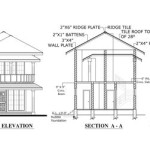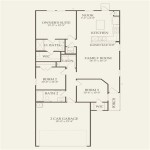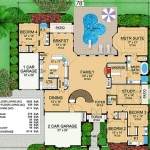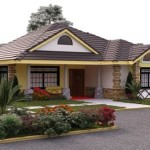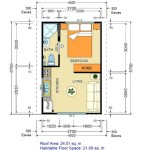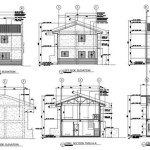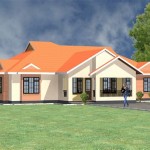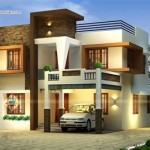Essential Aspects of Traditional Arabic House Plans: A Journey into Architectural Heritage
Traditional Arabic houses embody centuries of architectural wisdom and cultural heritage. Their unique designs reflect the region's climate, social customs, and aesthetic sensibilities. Understanding the key aspects of these house plans unveils a rich history and provides valuable insights for modern design.1. Passive Climate Control
One of the most striking features of Arabic houses is their adaptation to the harsh desert climate. Thick, mud-brick walls provide excellent thermal insulation, cooling the interior during hot summer days and retaining warmth during chilly nights. Small windows and narrow courtyards limit heat gain, while elaborate ventilation systems ensure natural air circulation.
2. Interior Courtyard: The Heart of the Home
The courtyard is central to the traditional Arabic house's design. It is a semi-open space surrounded by rooms and provides a shaded, communal gathering area. The courtyard is often adorned with intricate tilework, water features, and greenery, creating a serene and cooling oasis.
3. Privacy and Community
Arabic house plans prioritize both privacy and communal living. The house is typically divided into separate sections for men and women, with entrances leading into courtyards or isolated rooms. At the same time, the courtyard provides a shared space where families can gather, socialize, and celebrate special occasions.
4. Symmetrical Facade
Traditional Arabic houses often feature symmetrical facades, with arched entrances, decorative niches, and intricate carvings. The symmetry reflects the importance of balance and order in Islamic architecture and creates a visually pleasing aesthetic.
5. Ornate and Decorative Elements
Arabic houses are renowned for their exquisite ornamentation. Intricate tilework, carved plasterwork, and colorful mosaics adorn both the exterior and interior spaces. These elements draw inspiration from Islamic geometric patterns and calligraphy, adding beauty and a sense of cultural identity.
6. Local Building Materials
Traditional Arabic houses utilize locally sourced building materials, reflecting the region's environmental and cultural heritage. Mud-bricks, stone, and wood are commonly used, providing authenticity and sustainability.
7. Heritage and Modernization
While traditional Arabic house plans have withstood the test of time, contemporary architecture incorporates elements of these designs into modern homes. Architects and homeowners are reimagining courtyard spaces, incorporating passive climate control techniques, and introducing modern amenities while preserving the essence of the traditional Arabic house.
Understanding the essential aspects of traditional Arabic house plans not only provides a glimpse into a rich architectural history but also offers valuable lessons for sustainable and culturally sensitive design. By incorporating elements of these traditional designs, architects and homeowners can create harmonious and comfortable living spaces that connect us to the past and inspire future generations.
Arabic House Plan And Section Architecture Design Sketch Scenic
Traditional Ic Arab House Voary And Syntax

Traditional Arabic House Design Comelite Architecture Structure And Interior Arco

24 01 Casa Follina Courtyard House Plans Layout Architectural Floor

The Effects Of Cultural Values On Traditional Ic Arabic Houses In Middle East Springerlink

Traditional Arabic House Design Klassisch Balkon London Houzz

Figure 11 From The Traditional Arabic House Its Historical Roots Semantic Scholar Ancient Near East

Country House Plan With 3 Bedrooms And 2 5 Baths 1049

Ancient Arabic Houses Old Traditional Muslim Brick Buildings Desert Architectural Objects Mosque Vector Flat Collection Structure Sandstone House Ilration Stock Vrgrafik Adobe

Arabic Houses Spazio Interior Dubai

